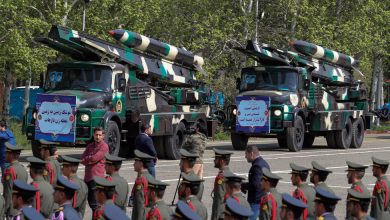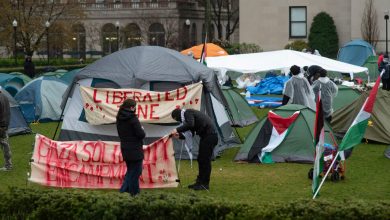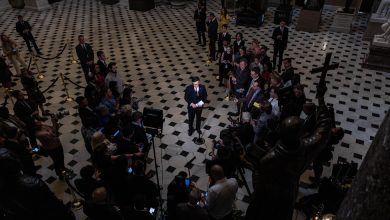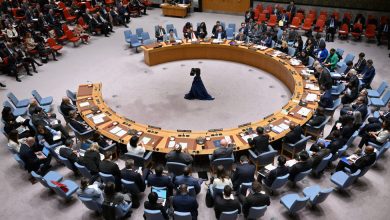Oath Keepers Leader Convicted of Sedition in Landmark Jan. 6 Case
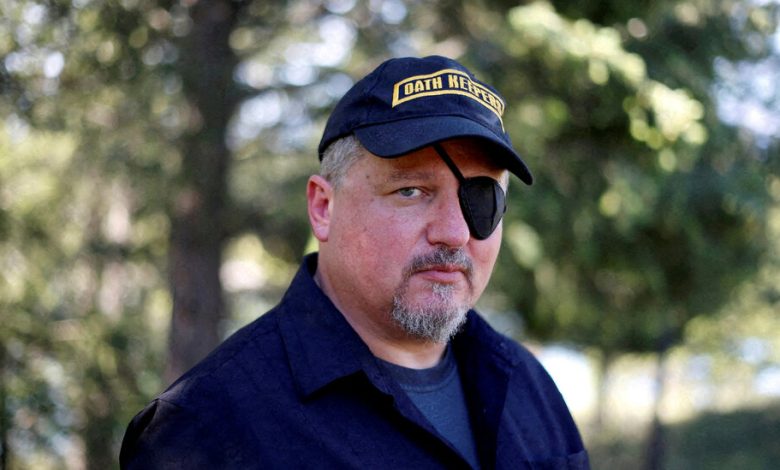
Stewart Rhodes, the leader of the far-right Oath Keepers militia, and one of his subordinates were convicted on Tuesday of seditious conspiracy as a jury found them guilty of seeking to keep former President Donald J. Trump in power through a plot that started after the 2020 election and culminated in the mob attack on the Capitol.
But the jury in Federal District Court in Washington found three other defendants in the case not guilty of sedition and acquitted Mr. Rhodes of two separate conspiracy charges.
The split verdicts, coming after three days of deliberations, were nonetheless a victory for the Justice Department and the first time in nearly 20 trials related to the Capitol attack that a jury decided that the violence that erupted on Jan. 6, 2021, was the product of an organized conspiracy.
Seditious conspiracy is the most serious charge brought so far in any of the 900 criminal cases stemming from the vast investigation of the Capitol attack, an inquiry that could still result in scores, if not hundreds, of additional arrests. It carries a maximum penalty of 20 years in prison.
Mr. Rhodes was convicted of sedition along with Kelly Meggs, who ran the Florida chapter of the Oath Keepers at the time of the Capitol attack. Three other defendants in the case — Kenneth Harrelson, Jessica Watkins and Thomas Caldwell — were found not guilty of sedition.
Understand the Events on Jan. 6
- Timeline: On Jan. 6, 2021, 64 days after Election Day 2020, a mob of supporters of President Donald J. Trump raided the Capitol. Here is a close look at how the attack unfolded.
- A Day of Rage: Using thousands of videos and police radio communications, a Times investigation reconstructed in detail what happened — and why.
- Lost Lives: A bipartisan Senate report found that at least seven people died in connection with the attack.
- Jan. 6 Attendees: To many of those who attended the Trump rally but never breached the Capitol, that date wasn’t a dark day for the nation. It was a new start.
Mr. Rhodes was acquitted of two different conspiracy charges: one accusing him of plotting to disrupt the certification of the election on Jan. 6 and the other of plotting to stop members of Congress from discharging their duties that day.
A charge that traces back to efforts to protect the federal government against Southern rebels during the Civil War, seditious conspiracy has been used over the years against a wide array of defendants — among them, far-right militias, radical trade unions and Puerto Rican nationalists. The last successful sedition prosecution was in 1995 when a group of Islamic militants was found guilty of plotting to bomb several New York City landmarks.
The Oath Keepers sedition trial began in Federal District Court in Washington in early October when Jeffrey S. Nestler, one of the lead prosecutors in the case, told the jury in his opening statement that in the weeks after Joseph R. Biden Jr. won the election, Mr. Rhodes and his subordinates “concocted a plan for an armed rebellion to shatter a bedrock of American democracy”: the peaceful transfer of presidential power.
Mr. Nestler also closed the government’s case last week, declaring that the Oath Keepers had plotted against Mr. Biden, ignoring both the law and the will of the voters, because they hated the results of the election.
“They claimed to be saving the Republic,” he said, “but they fractured it instead.”
In between those remarks, prosecutors showed the jury hundreds of encrypted text messages swapped by Oath Keepers members, demonstrating that Mr. Rhodes and some of his followers were in thrall to outlandish fears that Chinese agents had infiltrated the United States government and that Mr. Biden — a “puppet” of the Chinese Communist Party — might cede control of the country to the United Nations.
The messages also showed that Mr. Rhodes was obsessed with the leftist movement known as antifa, which he believed was in league with Mr. Biden’s incoming administration. At one point during the trial, Mr. Rhodes, who took the stand in his own defense, told the jury he was convinced that antifa activists would storm the White House, overpower the Secret Service and forcibly drag Mr. Trump from the building if he failed to admit his defeat to Mr. Biden.
Prosecutors sought to demonstrate how Mr. Rhodes, a former Army paratrooper with a law degree from Yale, became increasingly panicked as the election moved toward its final certification at a joint session of Congress on Jan. 6. Under his direction, the Oath Keepers — whose members are largely former law-enforcement officers and military veterans — took part in two “Stop the Steal” rallies in Washington, providing event security and serving as bodyguards for pro-Trump dignitaries.
Throughout the postelection period, the jury was told, Mr. Rhodes was desperate to get in touch with Mr. Trump and persuade him to take extraordinary measures to maintain power. In December 2020, he posted two open letters to Mr. Trump on his website, begging the president to seize data from voting machines across the country that would purportedly prove the election had been rigged.
In the letters, Mr. Rhodes also urged Mr. Trump to invoke the Insurrection Act, a more than two-century-old law that he believed would give the president the power to call up militias like his own to suppress the “coup” — purportedly led by Mr. Biden and Kamala Harris, the incoming vice president — that was seeking to unseat him.
“If you fail to act while you are still in office,” Mr. Rhodes told Mr. Trump, “we the people will have to fight a bloody war against these two illegitimate Chinese puppets.”
As part of the plot, prosecutors maintained, Mr. Rhodes placed a “quick reaction force” of heavily armed Oath Keepers at a Comfort Inn in Arlington County, Va., ready to rush their weapons into Washington if their compatriots at the Capitol needed them. Mr. Caldwell, a former Navy officer, tried at one point to secure a boat to ferry the guns across the Potomac River, concerned that streets in the city might be blocked.
Mr. Rhodes tried to persuade the jury during his testimony that he had not been involved in setting up the “quick reaction force.” But he also argued that if Mr. Trump had invoked the Insurrection Act, it would have given the Oath Keepers the legal standing as a militia to use force of arms to support the president.
On Jan. 6 itself, Mr. Rhodes remained outside the Capitol, standing in the crowd like “a general surveying his troops on the battlefield,” Mr. Nestler said during the trial. While prosecutors acknowledged that he never entered the building, they claimed he was in touch with some of the Oath Keepers who did go in just minutes before they breached doors on the Capitol’s east side.
Even with the convictions, the government is continuing to prosecute several other Oath Keepers, including four members of the group who are scheduled to go on trial on seditious conspiracy charges on Monday. Another group of Oath Keepers is facing lesser conspiracy charges at a trial now set for next year, and Kellye SoRelle, Mr. Rhodes’s onetime lawyer, has been charged in a separate criminal case.

